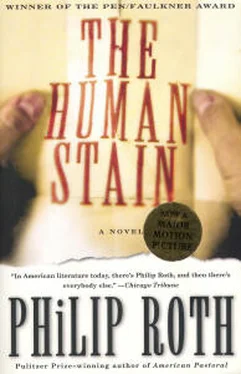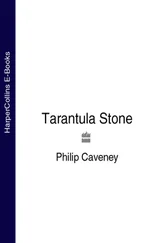No, a mishap like this one doesn't throw me as much as it used to when, in the months after the surgery, I was first experimenting with the ways of handling the problem — and when, of course, I was habituated to being a free and easy, dry and odorless adult possessing an adult's mastery of the body's elementary functions, someone who for some sixty years had gone about his everyday business unworried about the status of his underclothes. Yet I do suffer at least a pang of distress when I have to deal with something messier than the ordinary inconvenience that is now a part of my life, and I still despair to think that the contingency that virtually defines the infant state will never be alleviated.
I was also left impotent by the surgery. The drug therapy that was practically brand-new in the summer of 1998 and that had already, in its short time on the market, proved to be something like a miraculous elixir, restoring functional potency to many otherwise healthy, elderly men like Coleman, was of no use to me because of the extensive nerve damage done by the operation. For conditions like mine Viagra could do nothing, though even had it proved helpful, I don't believe I would have taken it.
I want to make clear that it wasn't impotence that led me into a reclusive existence. To the contrary. I'd already been living and writing for some eighteen months in my two-room cabin up here in the Berkshires when, following a routine physical exam, I received a preliminary diagnosis of prostate cancer and, a month later, after the follow-up tests, went to Boston for the prostatectomy. My point is that by moving here I had altered deliberately my relationship to the sexual caterwaul, and not because the exhortations or, for that matter, my erections had been effectively weakened by time, but because I couldn't meet the costs of its clamoring anymore, could no longer marshal the wit, the strength, the patience, the illusion, the irony, the ardor, the egoism, the resilience — or the toughness, or the shrewdness, or the falseness, the dissembling, the dual being, the erotic professionalism —to deal with its array of misleading and contradictory meanings. As a result, I was able to lessen a little my postoperative shock at the prospect of permanent impotence by remembering that all the surgery had done was to make me hold to a renunciation to which I had already voluntarily submitted. The operation did no more than to enforce with finality a decision I'd come to on my own, under the pressure of a lifelong experience of entanglements but in a time of full, vigorous, and restless potency, when the venturesome masculine mania to repeat the act — repeat it and repeat it and repeat it — remained undeterred by physiological problems.
It wasn't until Coleman told me about himself and his Voluptas that all the comforting delusions about the serenity achieved through enlightened resignation vanished, and I completely lost my equilibrium. Well into the morning I lay awake, powerless as a lunatic to control my thinking, hypnotized by the other couple and comparing them to my own washed-out state. I lay awake not even trying to prevent myself from mentally reconstructing the “transgressive audacity” Coleman was refusing to relinquish. And my having danced around like a harmless eunuch with this still vital, potent participant in the frenzy struck me now as anything but charming self-satire.
How can one say, “No, this isn't a part of life,” since it always is? The contaminant of sex, the redeeming corruption that de-idealizes the species and keeps us everlastingly mindful of the matter we are.
In the middle of the next week, Coleman got the anonymous letter, one sentence long, subject, predicate, and pointed modifiers boldly inscribed in a large hand across a single sheet of white typing paper, the twelve-word message, intended as an indictment, filling the sheet from top to bottom:
Everyone knows you're
sexually exploiting an
abused, illiterate
woman half your
age.
The writing on both the envelope and the letter was in red ballpoint ink. Despite the envelope's New York City postmark, Coleman recognized the handwriting immediately as that of the young French woman who'd been his department chair when he'd returned to teaching after stepping down from the deanship and who, later, had been among those most eager to have him exposed as a racist and reprimanded for the insult he had leveled at his absent black students.
In his Spooks files, on several of the documents generated by his case, he found samples of handwriting that confirmed his identification of Professor Delphine Roux, of Languages and Literature, as the anonymous letter writer. Aside from her having printed rather than written in script the first couple of words, she hadn't made any effort that Coleman could see to put him off the trail by falsifying her hand. She might have begun with that intention but appeared to have abandoned it or forgotten about it after getting no further than “Everyone knows.” On the envelope, the French-born professor hadn't even bothered to eschew the telltale European sevens in Coleman's street address and zip code. This laxness, an odd disregard — in an anonymous letter — for concealing the signs of one's identity, might have been explained by some extreme emotional state she was in that hadn't allowed her to think through what she was doing before firing off the letter, except that it hadn't been posted locally — and hastily — but appeared from the postmark to have been transported some hundred and forty miles south before being mailed. Maybe she had figured that there was nothing distinctive or eccentric enough in her handwriting for him to be able to recognize it from his days as dean; maybe she had failed to remember the documents pertaining to his case, the notes of her two interviews with Tracy Cummings that she had passed on to the faculty investigating committee along with the final report that bore her signature. Perhaps she didn't realize that, at Coleman's request, the committee had provided him with a photocopy of her original notes and all the other data pertinent to the complaint against him. Or maybe she didn't care if he did determine who out there had uncovered his secret: maybe she wanted both to taunt him with the menacing aggressiveness of an anonymous indictment and, at the same time, to all but disclose that the indictment had been brought by someone now far from powerless.
The afternoon Coleman called and asked me to come over to see the anonymous letter, all the samples of Delphine Roux's handwriting from the Spooks files were neatly laid out on the kitchen table, both the originals and copies of the originals that he'd already run off and on which he'd circled, in red, every stroke of the pen that he saw as replicating the strokes in the anonymous letter. Marked off mainly were letters in isolation — a y, an s, an x, here a word-ending e with a wide loop, here an e looking something like an i when nestled up against an adjacent d but more like a conventionally written e when preceding an r —and, though the similarities in writing between the letter and the Spooks documents were noteworthy, it wasn't until he showed me where his full name appeared on the envelope and where it appeared in her interview notes with Tracy Cummings that it seemed to me indisputable that he had nailed the culprit who'd set out to nail him.
Everyone knows you're
sexually exploiting an
abused, illiterate
woman half your
age.
While I held the letter in my hand and as carefully as I could — and as Coleman would have me do — appraised the choice of words and their linear deployment as if they'd been composed not by Delphine Roux but by Emily Dickinson, Coleman explained to me that it was Faunia, out of that savage wisdom of hers, and not he who had sworn them both to the secrecy that Delphine Roux had somehow penetrated and was more or less threatening to expose. “I don't want anybody butting in my life. All I want is a no-pressure bang once a week, on the sly, with a man who's been through it all and is nicely cooled out. Otherwise it's nobody's fucking business.”
Читать дальше












